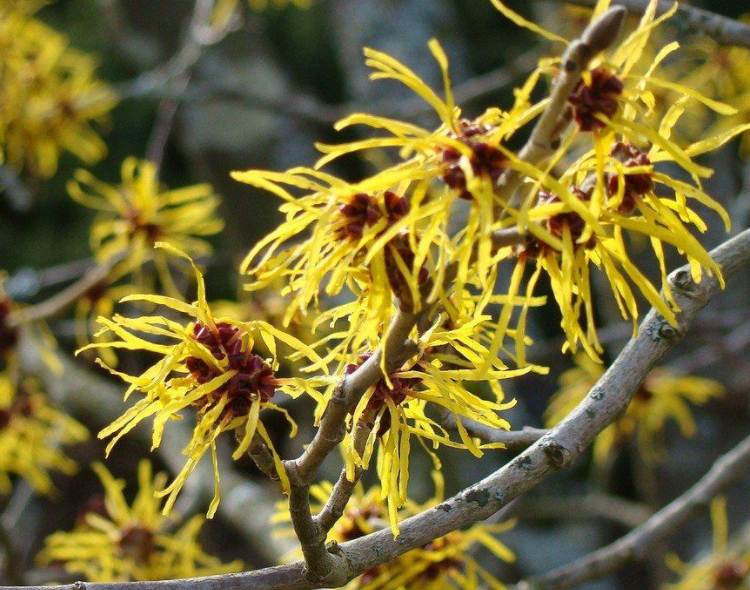
If you’re in search of a natural aftershave solution or a remedy for post-shaving skin irritation, look no further. We have just the answer for you!
What could this miracle product be? It’s Witch Hazel extract. Witch hazel, a small tree or shrub native to North America and Eastern Asia, is celebrated for its anti-inflammatory, antiseptic, and antioxidant qualities. Packed with beneficial compounds like tannins, gallic acid, phenolic compounds, and catechins, it stands out as an exceptional choice for aftershave use.
Curious about how to incorporate Witch Hazel into your post-shaving routine? We’ll delve into its origins, benefits, alcohol content, and application techniques to ensure you maximize the advantages of this versatile aftershave product.
Table of Contents:
Part 1: What is Witch Hazel?

Witch Hazel, scientifically known as Hamamelis Virginiana, is a small deciduous tree or shrub commonly found in North America and Eastern Asia. The name originates from the Old English word “Wiche” or “Wice,” which translates to bendable, reflecting its historical use for locating underground water sources. With its soothing and anti-inflammatory properties, the extract derived from this shrub is effective against acne, pimples, and skin irritations.
You’ll find Witch Hazel in various skincare products, ointments, lotions, and even shampoos. Many individuals also turn to this extract as a natural aftershave solution.
Part 2: Is Witch Hazel Beneficial After Shaving?
Witch Hazel serves as an excellent post-shave remedy, alleviating razor burns, itching, and inflammation. Let’s explore how this natural ingredient can enhance your shaving experience.
Post-Shave Benefits
Experiencing razor burns, redness, and inflammation after shaving is quite common, especially for beginners who may also deal with cuts and nicks. How can Witch Hazel assist in these situations?
As an astringent, Witch Hazel effectively contracts the skin, helping to close minor cuts and nicks while minimizing bleeding. Its high tannin content combats redness and inflammation, providing much-needed relief.
When it comes to razor burns, the antioxidants found in Witch Hazel can soothe the skin and alleviate irritation caused by these burns.
Antiseptic Properties
When you have small nicks on your skin, the protective barrier is compromised, making you more vulnerable to infections. Therefore, applying an antiseptic immediately to the cuts is crucial, and Witch Hazel excels in this regard.
Thanks to its elevated phenolic content, Witch Hazel possesses significant antiseptic properties that inhibit the growth of harmful bacteria on the skin, effectively preventing infections. Furthermore, the tannins from the plant extract can penetrate bacterial cell walls, disrupting their normal functioning and leading to their destruction.
Moisturizing Effects
Post-shaving, your skin often feels dry, making moisturizer essential for achieving a smooth appearance. Remarkably, Witch Hazel also offers mild hydrating properties.
This single ingredient can address many common post-shaving issues. Additionally, as a natural product, it poses minimal risk of allergic reactions often associated with synthetic skincare items.
Note: The moisturizing effects of Witch Hazel are quite subtle, so relying solely on it for deep hydration isn’t advisable. It’s best to pair it with another moisturizing product for optimal results.
Part 3: Is Witch Hazel Safe to Use After Shaving?

While specific ingredients in aftershave products can limit their use depending on skin type, Witch Hazel is versatile and suitable for all skin types, including oily, normal, dry, acne-prone, and combination skin.
However, the suitability of Witch Hazel may vary between individuals due to its tannin content. Tannins can potentially dry out the skin and constrict pores, so those with dry or sensitive skin might consider using it alongside a hydrating agent.
Wondering how to determine if it’s right for you? Perform a patch test. After shaving, apply Witch Hazel to a small area and wait a few minutes to check for any allergic reactions or skin sensitivities.
Part 4: Does Witch Hazel Contain Alcohol?
This can vary. Witch Hazel products may be available in both alcoholic and non-alcoholic forms, so your choice should depend on your specific skin type, condition, and personal needs.
Part 5: How to Apply Witch Hazel After Shaving?
Are you seeking the best way






































